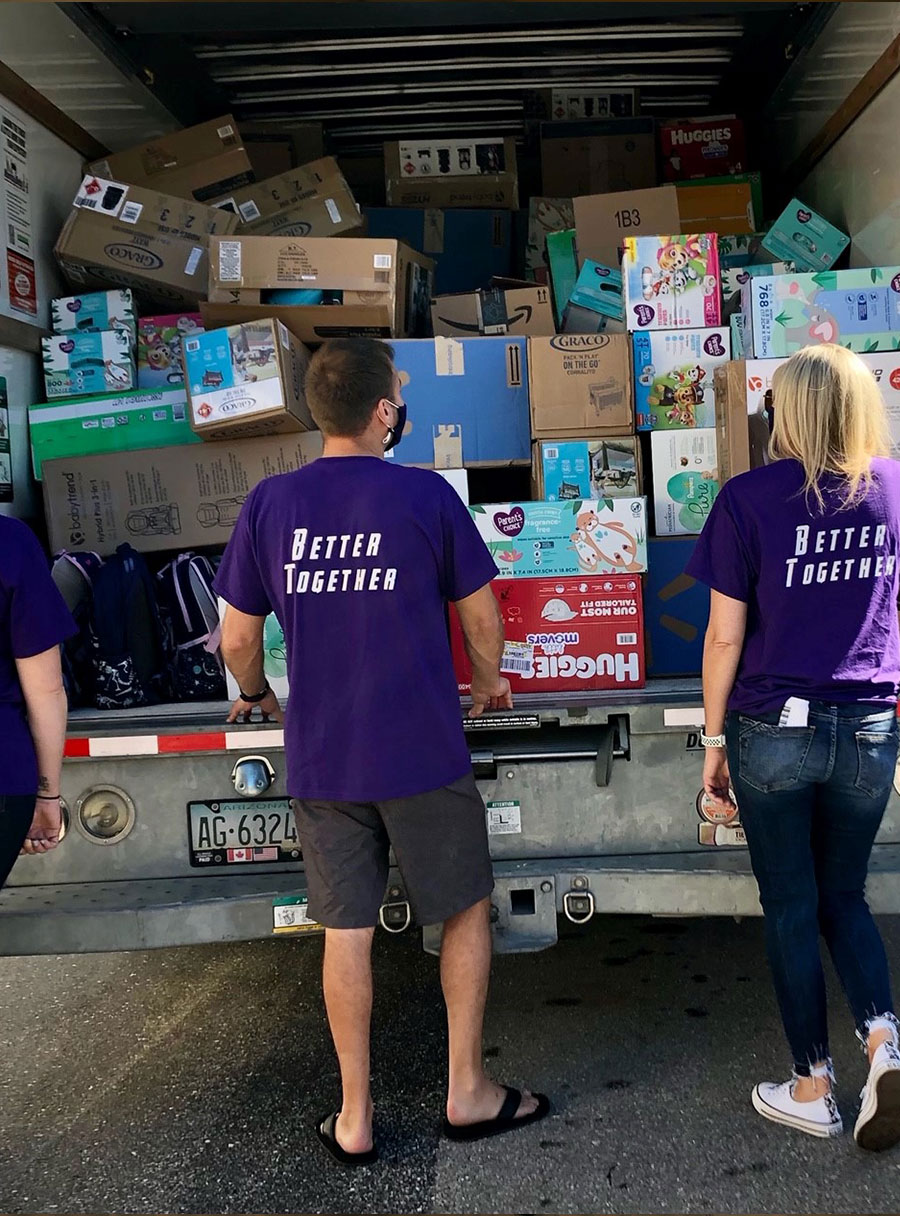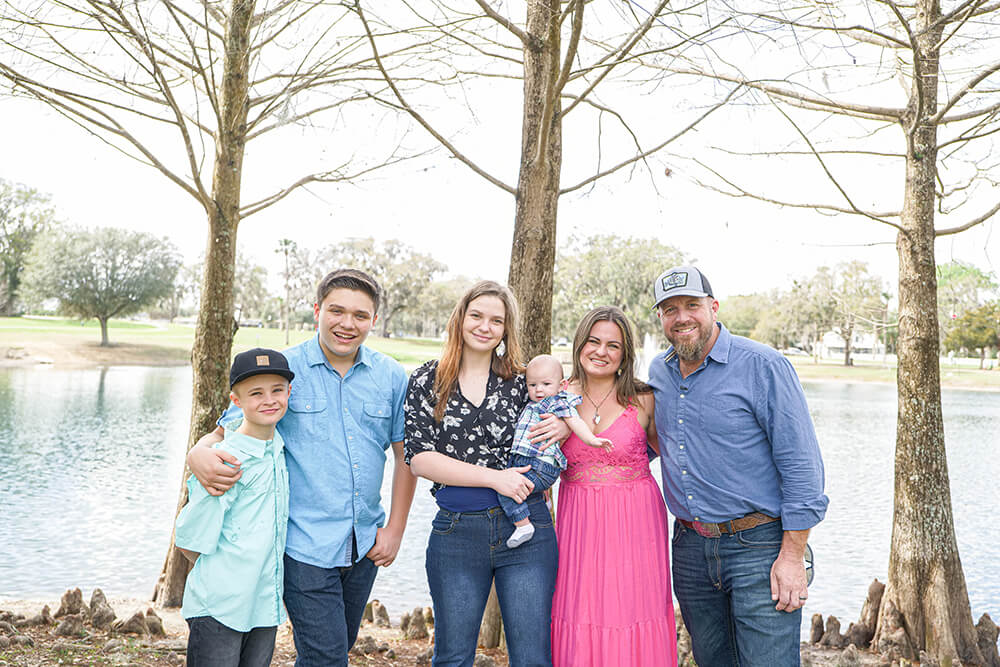Better Together, a voluntary, community-driven alternative to foster care, has received a $30,000 donation of family supplies from Truist Financial Corporation as part of its Lighthouse Project program.
The Lighthouse Project is a long-standing BB&T, now Truist, tradition that allows teammates to support local nonprofit organizations on projects to address critical community needs. This year, Truist rallied 402 teammates to help purchase $30,000 in car seats, portable playards, diapers, wipes, socks, shoes and HopePacks to support area children served by Better Together’s Better Families program.
“When parents fall into crisis, fully screened and trained volunteers provide children a safe place to sleep and food to eat so that parents can focus on getting their lives back on track,” said Megan Rose, CEO, Better Together. “This time of transition can feel particularly challenging for children during the holiday season, so we are very thankful for Truist’s generous donation that helps ensure host families will have the essential supplies they need to comfort and care for children during this time.”
Better Together has served over 2,500 children in Southwest Florida and kept 96% of families together. Loving parents should not lose children because they are having money problems, seeking treatment or hospitalized without childcare. These challenges can be overcome with the right support system in place.
With the help of hundreds of volunteers and church communities, Better Together builds lasting support systems that help families cope with hardships – job loss, substance abuse, homelessness and even jail time – and ensures that children are cared for in a safe home until the family can be reunited. Additionally, Better Together’s “Better Jobs” program has helped nearly 29,000 job seekers connect with employment opportunities through church-based job fairs across 20 states.
Since 2009, BB&T, now Truist, teammates have completed more than 12,000 community service projects, serving more than 700,000 volunteer hours and impacting the lives of more than 18 million people.






